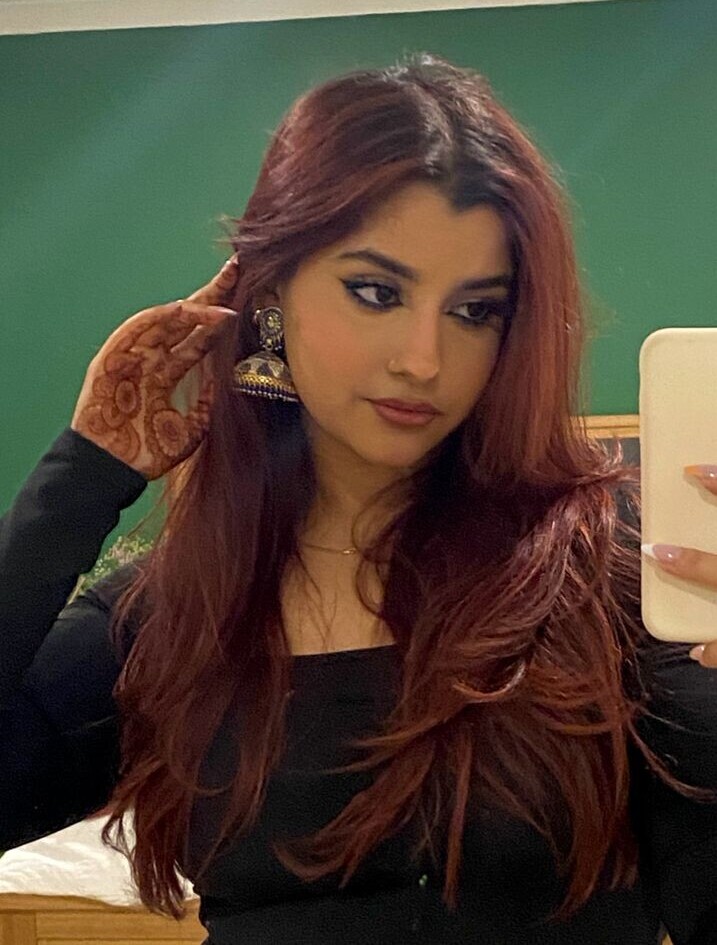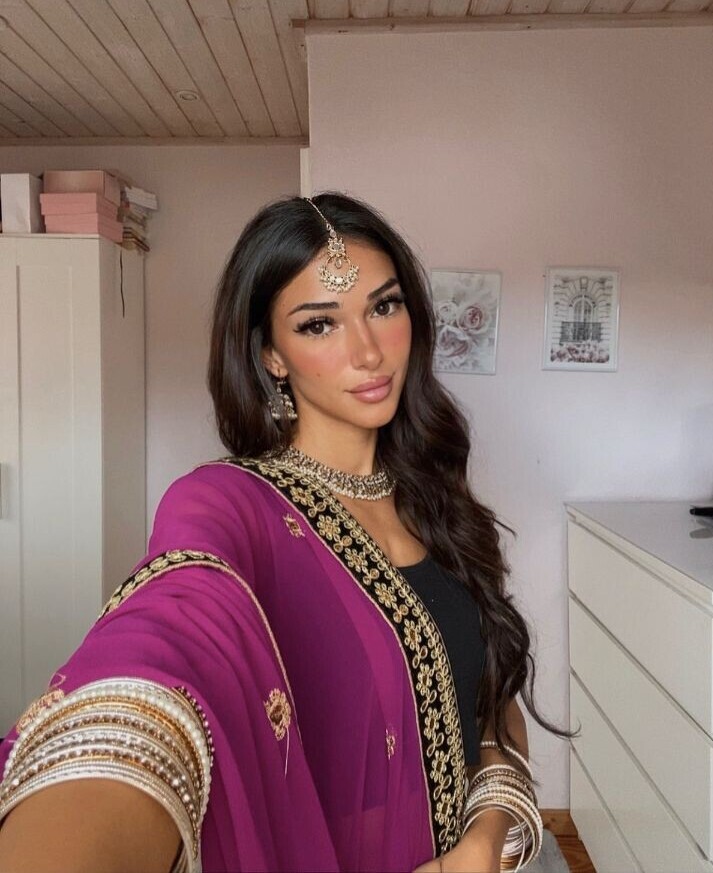
Best Friend’s POV (Maya):
As I sat on the couch, scrolling through my phone, I noticed Ananya’s fidgety behavior. She had been quiet for a while, and I could sense something was off. Ananya is usually the life of the party, I thought. Finally, she blurted out her feelings about Aryan, her boyfriend, and his best friend, Karan. “I just feel so uncomfortable around him, Maya. It’s like he doesn’t respect boundaries,” she confessed, her eyes filled with unease.
I listened intently as she described moments where Karan would invade her personal space or make jokes that crossed the line. It pained me to see my best friend feeling this way, especially around someone who should have been a source of support. Women should feel safe in all their relationships, I reminded her.
I told Ananya, “You have every right to feel uncomfortable, and your feelings are valid. It’s important to address this situation directly, not just for yourself but for other women who might feel the same way. Speak up; you are not alone in this.” I encouraged her to talk to Aryan about her feelings and set boundaries with Karan. This incident reminded me how crucial it is for women to recognize their discomfort and advocate for themselves. Being a fearless leader starts with acknowledging your feelings and taking action.

Ananya’s POV:
When I finally gathered the courage to talk to Aryan about Karan, my heart raced. I had been holding back my feelings for too long, and it was time to speak up. “I just feel so uncomfortable around Karan,” I said, trying to keep my voice steady. “He makes jokes that make me feel like he’s crossing a line, and I don’t know how to handle it.”
Seeing Aryan’s expression shift from confusion to concern made me feel a little better. I knew I had to be brave and assertive about my feelings. “I don’t want to ruin your friendship, but I need you to understand that this is affecting me. I deserve to feel safe around your friends,” I said, my voice gaining strength.
This experience taught me that acknowledging my discomfort wasn’t a weakness; it was a step toward empowerment. I realized that I had the right to express my feelings, no matter how difficult it was. As women, we often brush aside our instincts to maintain peace, but it’s essential to advocate for ourselves.

Boyfriend’s POV (Aryan):
When Ananya finally mustered the courage to talk to me about Karan, I felt a mix of confusion and concern. I had always thought of Karan as a close friend, someone who brought fun to our gatherings. But hearing Ananya’s perspective opened my eyes to how his actions affected her. “I didn’t realize you felt that way, Ananya,” I said, my heart sinking. “I would never want you to feel uncomfortable around my friends.”
It hit me that sometimes we overlook how our friends’ behaviors can impact our partners. As a boyfriend, it’s my duty to protect Ananya’s feelings and create a safe space for her. It’s essential to listen and be receptive to her concerns. I promised her that I would have a conversation with Karan about respecting her boundaries. This moment made me reflect on my responsibility as a partner—being aware of how others can influence our relationships.
I realized that true leadership isn’t just about asserting authority; it’s also about listening, understanding, and standing up for those we care about. Ananya’s courage to express her feelings taught me that when we advocate for ourselves, we empower others to do the same.
Karan’s POV:
When I noticed Aryan and Ananya talking intensely in the corner, I felt a pang of curiosity mixed with unease. I had always viewed Ananya as a fun, vibrant person, but it seemed something was troubling her. Maybe it was my playful teasing that pushed her boundaries too far? I recalled moments when I might have crossed a line, but I brushed it off, thinking it was all in good fun.
Later, I overheard snippets of their conversation about me. My stomach twisted. I had no intention of making anyone uncomfortable, especially not Aryan’s girlfriend. I thought of the jokes I made and how they were supposed to be light-hearted. Was I being the friend who didn’t know when to stop?
This incident made me realize that sometimes, what seems harmless to one person can feel threatening to another. It’s crucial to be mindful of how my actions affect those around me. Moving forward, I need to be more aware and respectful of people’s feelings—especially those of women. Their comfort should always come first.
Lessons Learned:
This experience reminded all of us of the importance of acknowledging discomfort and standing up against it. Women, like Ananya, must recognize that their feelings are valid, and they have the right to voice them. Creating a safe space in relationships means addressing uncomfortable feelings directly, fostering open communication, and setting boundaries.
As friends and partners, it’s crucial to listen without judgment and support each other in these moments. Aryan’s commitment to understanding Ananya’s feelings demonstrates the importance of allies in our lives. Being a fearless leader means advocating for ourselves and others, confronting uncomfortable situations head-on, and fostering environments where everyone feels respected.
Ultimately, this narrative serves as a powerful reminder that feeling uncomfortable is not a sign of weakness but rather a call to action. Women should embrace their feelings, use their voices to assert their boundaries, and strive for respectful relationships. Empowerment comes from confronting discomfort and transforming it into strength, creating a ripple effect of support and resilience in our communities.
No Responses